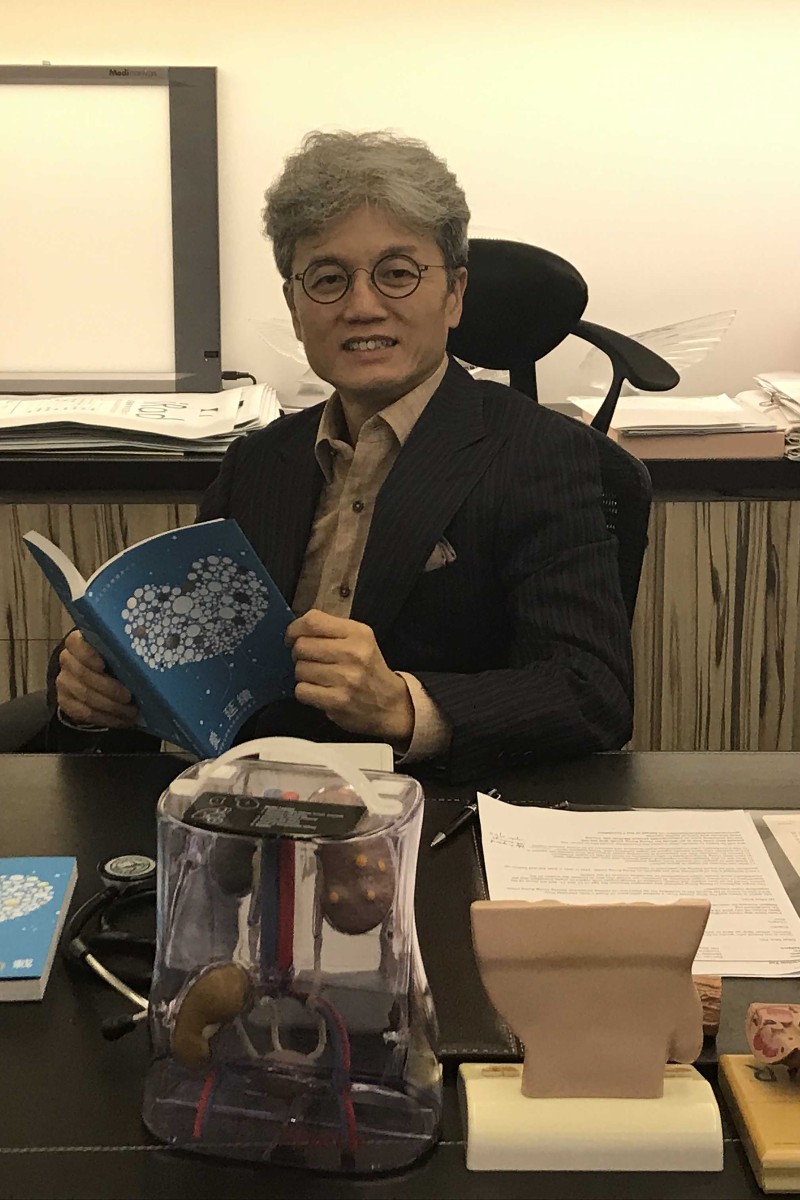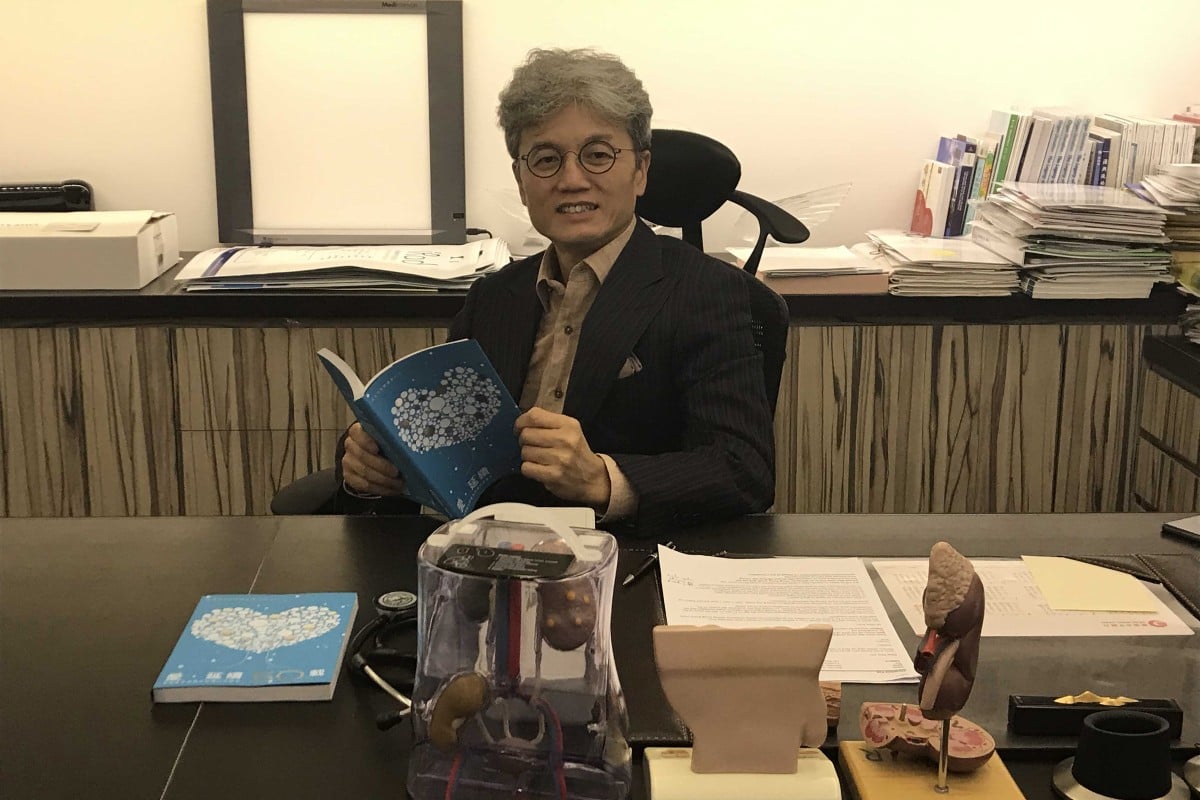
- Kidney specialist Dr Kelvin Ho Kai-leung aims to raise awareness and break taboos about the importance of becoming a donor
- The city’s number of organ donors is far behind places such as Taiwan, China, and South Korea
 Dr Kelvin Ho says some teenagers want to sign up as organ donors but their parents are against it.
Dr Kelvin Ho says some teenagers want to sign up as organ donors but their parents are against it. Hong Kong’s first-ever kidney transplant was performed at Queen Mary Hospital 50 years ago. Even though organ transplant is no longer regarded as an extreme form of surgery, it is still a taboo subject among many Hongkongers.
This prompted Dr Kelvin Ho Kai-leung, a nephrologist (a kidney specialist), to set up the Hong Kong Organ Transplant Foundation in 2014. A non-governmental organisation, the foundation plays an important role in educating the public about organ donation while supporting patients suffering from organ failure, organ donors, and their family members.
“Many patients are unlikely to survive unless they get an organ. But unfortunately, the mindset of the city is such that most people are not very supportive of the idea of donating their organs when they die,” says Ho.
Why are so few Hongkongers registered organ donors, and how can we change this?
“This is where we come in to change their way of thinking. We want to do whatever is necessary to help these unfortunate patients who are on the waiting list [for a new organ].”
According to Ho, the city’s number of organ donors is far behind places such as Taiwan, China, and South Korea. As of September this year, there were 310,878 registered donors in Hong Kong – about six for every one million citizens; the figure is eight times higher in Spain, for example.
The shortage of organ donors in Hong Kong is a worry. Ho emphasises that every person who signs up counts, because the organs from just one donor can be used for lung, kidney, heart, and cornea transplants, and this can change the lives of as many as seven people.
“The average waiting time for a donor kidney is four years, and about two to three for heart and lungs,” he explains. “Patients with kidney failure have the option of going for dialysis and prolonging their life expectancy until they can find a suitable organ donor."
“On the other hand, patients with heart or lung failure usually don’t live beyond two years after being diagnosed, even if they have a supporting device, such as an artificial heart.”
Despite these discouraging figures, Ho is optimistic about the future of organ donation in Hong Kong. “Education is key to changing people’s mindset, and it needs to start from a young age.” And this is why the foundation started a programme in 2016 to provide organ donation teaching materials for liberal studies. The programme has been so successful that they’re still receiving calls from schools who want to use these materials in the classroom.
This is important because many Hongkongers don’t know much about organ donation, such as how to sign up as a donor, age limitations, and the donation process for the deceased. “It is really easy to register as an organ donor. You can do it online via the Department of Health’s website, after which, you’ll receive a phone call to confirm your registration,” Ho says. “There is no strict age limitation, and organ donors can be as young as a newborn or as old as 70. It depends on the donor’s health status.”
Ho adds that medical personnel will need to certify the donor is brain-dead and determine if the organs are suitable for donation. The organs will only be harvested with the family’s consent – and this is usually the hardest part because there is a lot of resistance from family members, especially parents being asked to donate their deceased children’s organs.
“We are aware of teenagers who want to sign up as donors but their parents are against this,” he says. “The best way to get through to them is to be patient, and to help them understand the needs of these patients and how they suffer from their illnesses.
“Give them time to sit on the idea and put themselves in the shoes of the patients’ parents. It won’t be easy and a lot of persuasion will be needed. But remember, a single donor can change the lives of seven others.”
